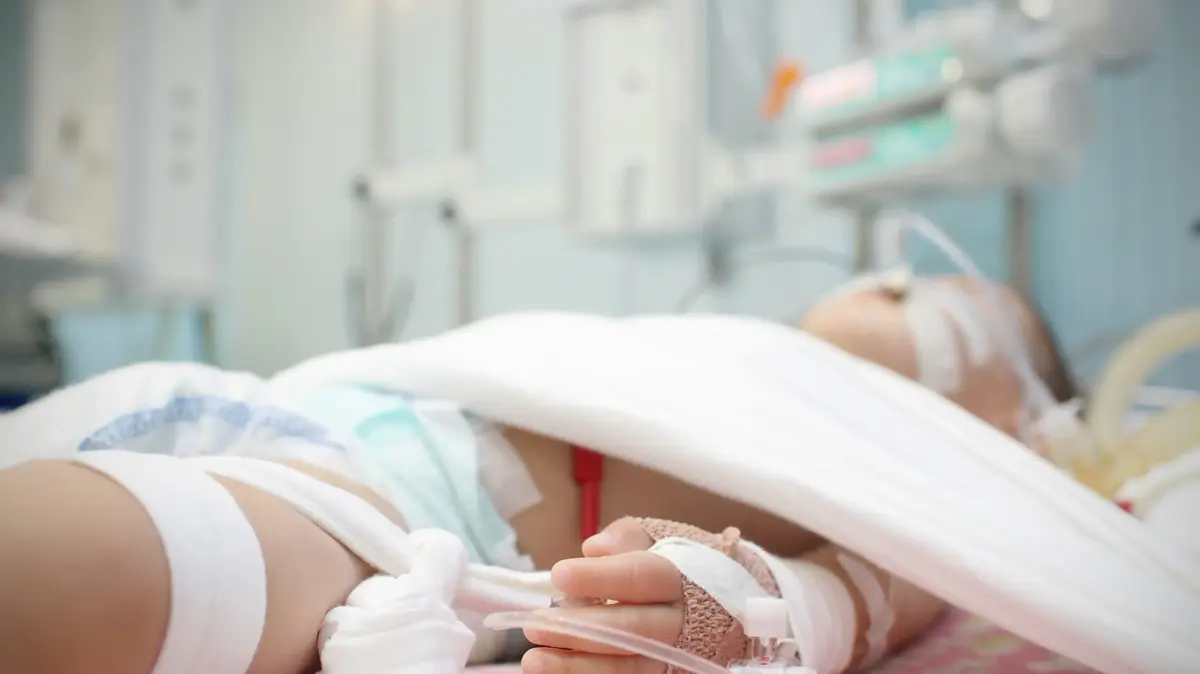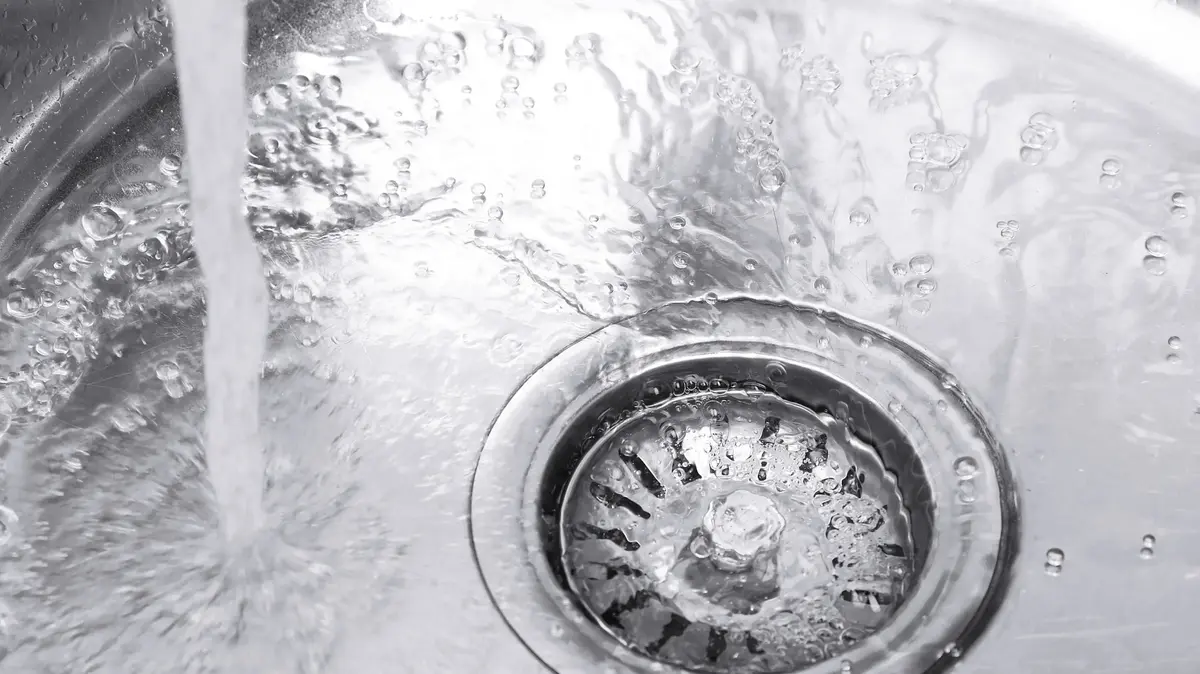health
news
"Suddenly I realized something was really wrong, it was almost too late"
About 40 percent of juvenile diabetes cases are diagnosed only when children reach a state of acidosis that can be life-threatening and cause irreversible damage. A new test developed in Israel at Schneider Pediatrics Hospital will try to prevent this with early diagnosis.
Tags
diabetes mellitus
Juvenile Diabetes
ICU
Walla!
health
Sunday, 14 November 2021, 09:10 Updated: 09:23
Share on Facebook
Share on WhatsApp
Share on general
Share on general
Share on Twitter
Share on Email
0 comments
A groundbreaking study from the Clalit Group's Schneider Center for Pediatrics finds that using a standard finger blood test can predict 85 percent future development of juvenile diabetes (type 1 diabetes) in infants aged nine months to a year and a half. The importance of this finding is in the possibility of preventing diagnosis of the disease at a dangerous stage (a state of metabolic acidosis). In addition, a request has recently been submitted to the FDA (US Food and Drug Administration) for approval of a drug that inhibits the onset of diabetes, and thus can give those who have been found to be carriers a quality of life for an additional period of time.
When the diagnosis of diabetes comes in the wake of a serious and life-threatening condition, it can be experienced as a truly traumatic event for the family as well as for the young patients. As in the case of 8-year-old Ziv Kemar from Kfar Saba, who was diagnosed with diabetes in early April this year, after the Maccabi children's center referred her to the emergency room in Schneider.
Emma Rona says it happened after a few days in which Ziv did not feel well, vomited, suffered from weakness and abdominal pain.
She also stopped eating, but kept asking for a drink.
Rona initially did not attach much importance to this but Ziv continued to deteriorate and became a dysfunctional girl.
More on Walla!
I went to a sad funeral, and found myself in a chilling resuscitation
To the full article
The doctor told me: 'I'm sorry to tell you that the girl has diabetes, go to the hospital now.'
8-year-old Ziv Kemar (Photo: courtesy of those photographed)
Too late, almost too much
Ziv's symptoms aroused suspicion in her parents about Corona and they took her to be examined. After a negative result came and the situation only got worse, the pediatrician advised Ziv's parents to take her to the center. When they arrived at the center, the nurse weighed Ziv and the weight that appeared was significantly lower than the last weighing done on her at school six months ago. "At that moment it hit me, I realized something was really wrong, and then the nurse did a blood test for Ziv who showed a sugar level of 350. The doctor told me: 'I'm sorry to tell you that the girl has diabetes, go to the hospital now.' I was shocked and remembered that Ziv "Recently, I got up a lot for the bathroom in the middle of the night. Suddenly I did one and another, only it was already too late, almost too late," Rona recalls in pain.
Upon reaching Schneider, Ziv continued to vomit and the sugar level had already risen to 470 with an abnormal level of acidity.
The emergency room doctors tried to balance Ziv without success, and only after a few hours during which she was transferred to the intensive care unit did her condition begin to improve.
One of the doctors who treated Ziv explained to Rona that the state of miss in which she was in could cause her to have an edema in the brain.
"At that moment I almost fainted. So I started to realize how really serious the situation was and I just wanted her to be life-threatening. "These were the scariest hours of my life," says the mother.
"How can you think of a baby who is getting insulin injections?"
The one-year-old Tahal from Petah Tikva is currently marking three months since she was diagnosed as 'sweet'. At the age of only 9 months, Schneider arrived in intensive care in a very serious condition, after her mother Sarit noticed that the baby was blue and 'flew' her to the emergency room. Sarit tells of several days in which Tahal was restless and was in a state of considerable restlessness, often cried, vomited and also drank a lot of water. "When a baby pees a lot and fills diapers, it's hard to think that the source is a physical problem. I got into a situation of changing her diaper every 15 minutes, it's not really normal, but when you're inside it, the last thing you imagine is it."
On the morning of the diagnosis, little Tahal kept crying and Sarit, who was helpless, tried to calm her down and put her to sleep, gave her Nurofen and put her to bed.
In her last resourcefulness, Tahal, fortunately, continued to cry and only thanks to that, Sarit realized that something was really wrong.
When she picked her up from her bed she noticed a change in face color, which immediately lit a bright red light and sent them to the hospital.
Upon arrival at the emergency room, sugar tests were immediately taken to determine that it was diabetes.
Tahal's sugar levels in the diagnosis raged to 800. Tahal's small body was fighting, with its systems on the verge of collapse.
She was urgently brought to intensive care, where she was hooked up to life-saving devices and given a first insulin shot.
"Seeing her so small connected to devices, helpless, is the biggest nightmare I could not even think of."
Tahal and her mother Sarit (Photo: courtesy of those photographed)
"The prevalence of juvenile diabetes in children under the age of five has risen dramatically in recent years."
Prof. Moshe Philip
"A 9-month-old baby who gets insulin injections is something you can not think of. To see her so small attached to devices, helpless, it's the biggest nightmare I could not even think of. At such an age to talk about what is allowed and forbidden to give her, when she is exclusively fed. From this milk formula it is hallucinatory and inconceivable.We are still adjusting to this new situation and I keep thinking how it came to us so suddenly for such a little girl? How is it that we knew nothing about pregnancy? Lots of difficult questions and pictures from the hospital, For the near future. "
"The prevalence of type 1 diabetes has risen dramatically in the last two decades, especially in young children under the age of five. The disease has no cure and patients are treated with insulin all their lives," explains Prof. Moshe Philipp, director of the Clalit Group's Diabetes and Endocrinology Institute.
Juvenile diabetes is an autoimmune disease in which the body's immune system attacks the cells that produce insulin in the pancreas.
Due to the lack of insulin the sugar values rise and the disease is caused.
About 30-40 percent of new cases are diagnosed with diabetic metabolic acidosis, a life-threatening condition that sometimes also has long-term effects.
In recent years, the understanding has been sharpened that diagnosing juvenile diabetes at an early stage will allow the prevention of diabetic metabolic acidosis events in addition to opening up possibilities for understanding the disease and possibly even early treatment that will prevent its onset.
She did not stop crying, and thanks to that her life was saved.
Tahal Toddler (Photo: courtesy of the photographers)
More on Walla!
Exercising in the morning can be dangerous for these people
Does this trend really contribute to significant weight loss?
B-Cure Laser - Does It Really Help Eliminate Pain?
According to Prof. Philip, early diagnosis of the disease is possible by early detection of antibodies against the pancreas.
"80 percent of children diagnosed with diabetes at some point have two or more antibodies against the pancreas and have a high chance (85%) of developing the disease. The antibodies that cause diabetes usually develop at one to two years of age, so it is important to get tested at this age." .
He added that a serological test for antibodies against the pancreas would identify children at risk of developing diabetes, prevent life-threatening diabetic metabolic acid events, provide guidance to families of children at risk of developing the disease, and help understand the disease and develop treatments that would prevent and cure it.
"In these children the percentage of diabetic metabolic failure in the diagnosis of the disease is expected to drop to below five percent. In the not too distant future, we hope, we will be able to delay or prevent the onset of diabetes in this group of children," said Prof. Philip.
Share on Facebook
Share on WhatsApp
Share on general
Share on general
Share on Twitter
Share on Email
0 comments















